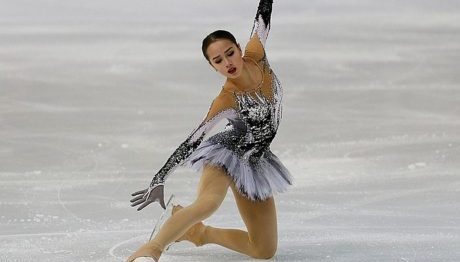The Winter Olympics in Pyeongchang are over, but their impact is just beginning for millions of children who watched the feats of female athletes and are inspired to go “faster, higher, stronger.”
Girls participate in sports as much as boys until age 13, but then drop out at twice the rate of boys. That’s troubling not because they might be passing up rare chances to become Olympians, but because they miss out on opportunities to boost self-confidence and learn life skills, experts say.
To help address the drop out rate, U.S. alpine ski racer Libby Ludlow founded the nonprofit ZGirls to provide mentoring and team-building activities for girls ages 11 to 14. Ludlow, who competed in the 2006 Olympics, says she pulled in sports psychologists, professional athletes, educators and mental health counselors to craft a curriculum “focused on building up girls’ well-being by giving them tools to deal with the internal obstacles of growing up female.”
The program, launched in 2012, mimics the Girl Scout model, with teams attending bimonthly meetings called “huddles” led by young female athletes, typically a college student or coach. They keep “achievement journals” on how athletic accomplishments apply to the rest of their lives.
“The scientific evidence is clear on all of the positive impacts of sports on young women,” says Sean McCann, senior sports psychologist for the U.S. Olympic Committee. ZGirls enhances those positive forces, he says.
Another nonprofit, Fast and Female, pursues similar goals across Canada and the United States. It was started by Canadian ski racer Chandra Crawford in 2005, the year before she won a cross-country gold medal at the 2006 Olympics. Its U.S. branch was founded by her friend and former rival Kikkan Randall, who with teammate Jessie Diggins just won America’s first-ever cross-country gold medal in Pyeongchang.
Accomplished female athletes serve as “ambassadors” to lead girls through activities and discussions at Fast and Female’s day-long “Champ Chats.”
“The ambassadors are excited to build the next generation of athletes,” says Sara Salo, Fast and Female USA’s executive director. “They understand that part of doing that is … having these frank and honest conversations with the girls.”
It’s not all about grooming talent for Team USA or intense competitions. Diggins organizes dance sessions at Fast and Female USA events just to remind girls to have fun.
Lea Brody-Heine, 16, of Bend, Oregon, had just joined her high school’s Nordic ski team when she got to hear Rosie Brennan, another U.S. Olympian, talk at a Fast and Female event about her start in competitive skiing.
“This is my first real season of skiing competitively,” Brody-Heine told her hometown newspaper. “It was really inspiring because we have kind of similar stories.”
Most ZGirls coaches did not achieve fame in sports, but they were in these girls’ shoes — or skis. “The most powerful thing they can do is say, ‘I hear you, I was there. This is what I did,’” says ZGirls’ Bianca Perry, a former college soccer player. “You see the girls’ eyes light up.”
Emily Louise Bowman









